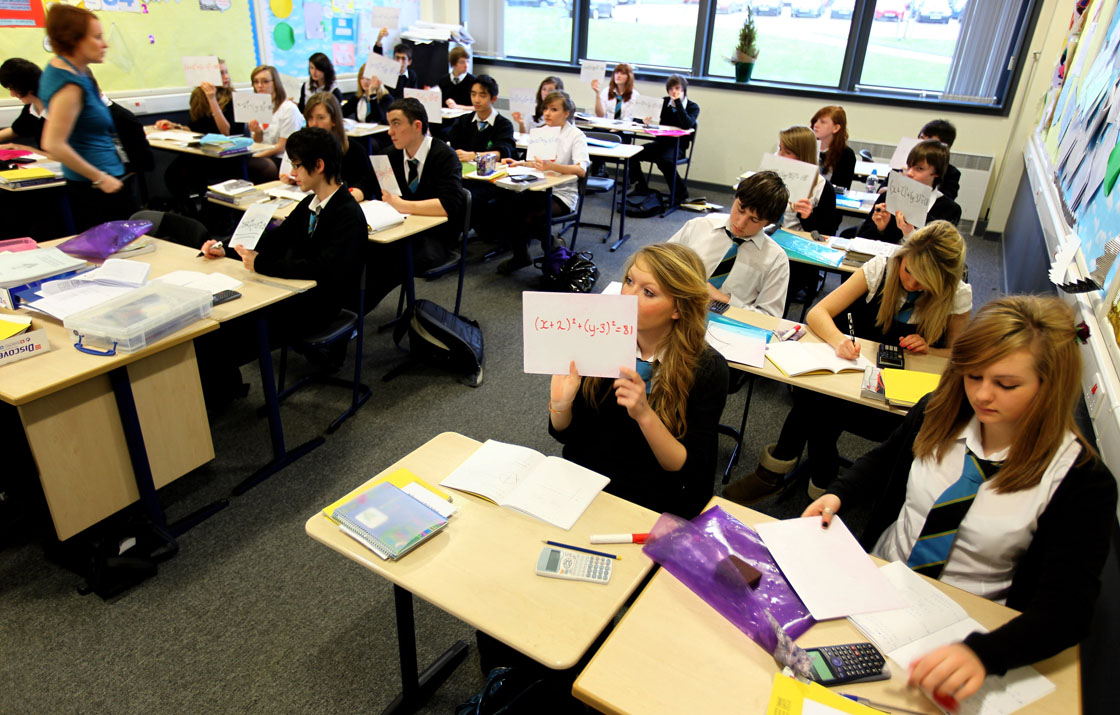Canada came in among the top three countries in a renowned international test of youth financial literacy. We ranked after China, and tied with Belgium, in the Programme for International Student Assessment (PISA), a triennial worldwide survey run by the Organisation for Economic Co-operation and Development (OECD) that measures knowledge about a variety of subject matters among 15-year-olds.

Canadian politicians and government officials were quick to celebrate the news.
READ MORE: Quebec to introduce finance to high school curriculum at expense of world history
“The PISA results show that our teachers and parents are doing an excellent job of educating young people about money,” Prince Edward Island Minister of Education Doug Currie said in a statement.
“Our government has made it a priority since 2011 to provide Ontario’s students with a variety of opportunities to build their financial literacy skills,” boasted Ontario Minister of Education Mitzie Hunter.
Canada’s rank is admittedly a pleasant surprise in a country where the average household debt is 167 per cent of disposable income.
READ MORE: Canadians still struggle with basic financial rules, rights: study
- Train goes up in flames while rolling through London, Ont. Here’s what we know
- Wrong remains sent to ‘exhausted’ Canadian family after death on Cuba vacation
- Liberals having ‘very good’ budget talks with NDP, says Freeland
- Peel police chief met Sri Lankan officer a court says ‘participated’ in torture
A closer look at the data, however, reveals a less flattering reality about Canadian kids’ ability to master financial concepts.
Canada’s mean score on the test was 533. And while that is 44 points above the OECD average, it corresponds to a Level 3 — out of five levels ranked from lowest to highest — on the organization’s scale of financial proficiency.
READ MORE: Back to school: Tips for students to avoid long-term debt, save for the future
Level 3 means students can understand and apply “commonly used financial concepts, terms and products,” calculate percentages and perform the math required to draw up a budget.
That falls short of being able to master more complex financial concepts and tasks, such as managing a bank account, which is what takes you to Level 4.
Level 5 entails, among other things, a broad understanding of how income tax works.
At the other end of the scale, Level 2 represents the “baseline level of proficiency in financial literacy that is required to participate in society,” according to the OECD.
At Level 3, Canadian students’ knowledge of financial matters appears to be OK, but not great.
READ MORE: Most millennials flying blind when investing: poll
On the plus side, a whopping 46 per cent of Canadian 15-year-olds were able to perform tasks associated with advanced levels of financial literacy (Level 4 or Level 5), FCAC pointed out to Global News.
However, Canada also displayed an above-average gap between the students who were top performers and those who scored the lowest on the test.
“One of the challenges that FCAC identified, in the light of these findings, will be to find ways to help those Canadian students, who perform at lower levels, develop the knowledge and skills required to make good financial decisions,” the agency told Global News via email.
READ MORE: Financial literacy a growing concern for B.C.’s students
China, where the OECD tested students in Beijing, Shanghai and the provinces of Jiangsu and Guangdong, was the only country with a Level 4 score.
Indeed, the OECD sounded a sombre note in its news release accompanying the publication of the tests results today.
READ MORE: Heading to university? Expert tips on budgeting and managing student debt




Comments